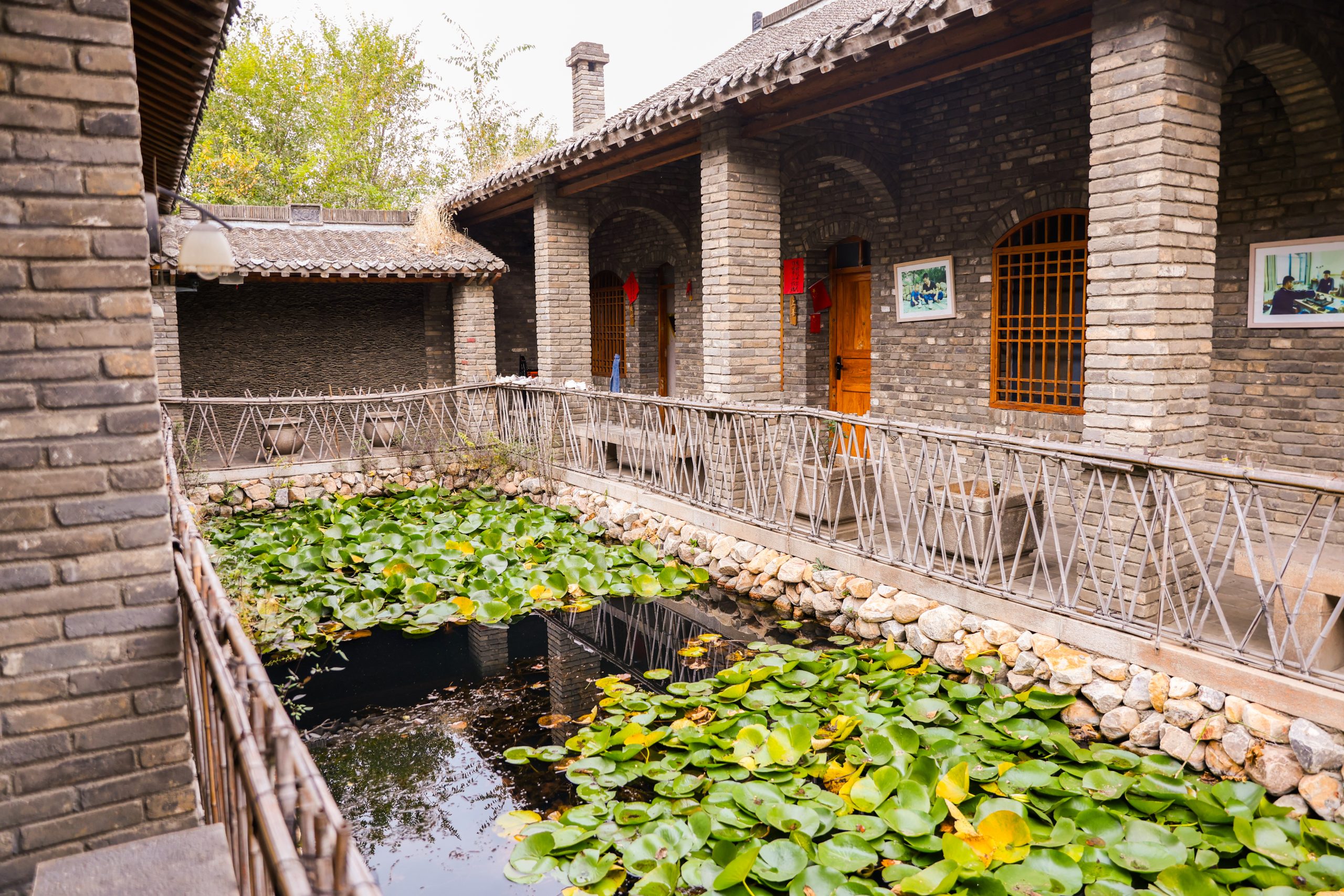
Nestled in the picturesque countryside of Dengfeng, Henan Province, Yangjiamen Village is more than just a charming rural settlement; it is a testament to the power of rural revitalization. As part of China’s efforts to rejuvenate its rural communities, Yangjiamen has transformed itself into a thriving example of sustainable development, blending traditional lifestyles with modern innovations. Visiting the village offered me a glimpse into how heritage and progress can coexist harmoniously, and it left me inspired by the potential of grassroots initiatives to reshape rural life.
A Warm Welcome to Yangjiamen Village
Driving through the winding roads that lead to Yangjiamen Village, the scenery gradually shifted from urban landscapes to serene fields, punctuated by traditional Chinese architecture. The village lies at the foothills of Mount Song, one of China’s Five Great Mountains, and the natural surroundings add a tranquil charm to the setting.
As we arrived, villagers greeted us warmly with traditional music and dance. Their genuine hospitality reflected the community’s pride in their achievements. Our guide, a local resident, shared that Yangjiamen has undergone a remarkable transformation over the past decade, evolving from a struggling farming village into a vibrant cultural and ecological destination.
Preserving Tradition: Architecture and Culture
One of the village’s most striking features is its commitment to preserving traditional architecture. The houses in Yangjiamen are built in the classic Chinese courtyard style, characterized by tiled roofs, wooden beams, and intricately carved windows. Many of these structures have been carefully restored to retain their historical charm while being adapted for modern use.
Walking through the village felt like stepping back in time. Narrow cobblestone streets wind their way between ancient homes, and the air is filled with the sounds of daily life—children playing, artisans at work, and the occasional chatter of locals. The preservation of these architectural elements is not just about aesthetics; it is a way of safeguarding the cultural identity of the village.
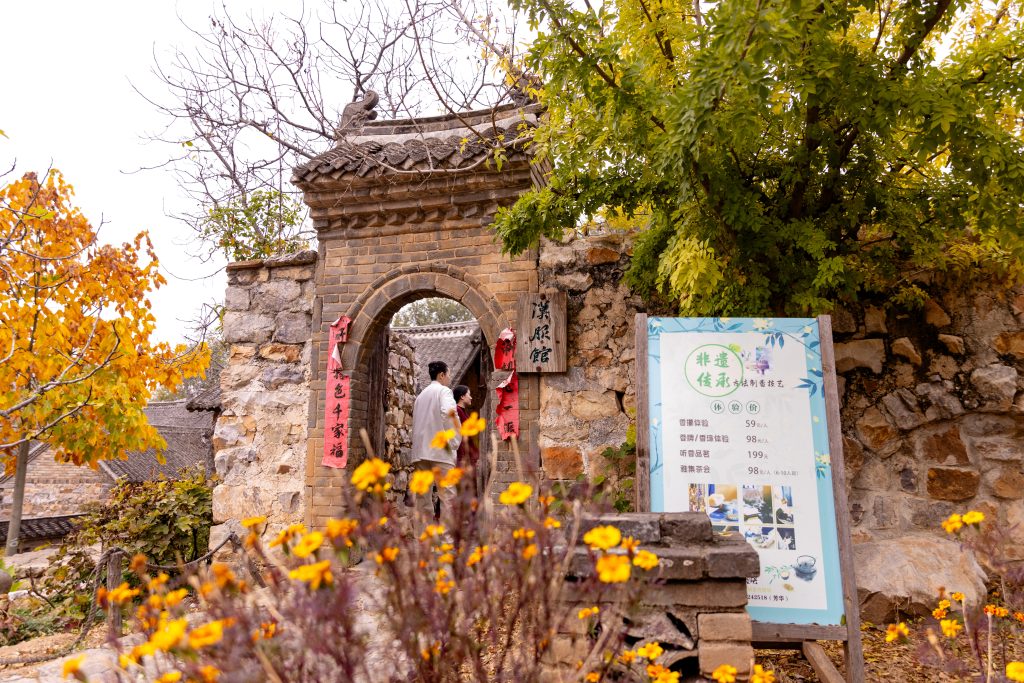
Showcasing Agricultural Heritage
Agriculture has long been the lifeblood of Yangjiamen, and the village proudly showcases its farming heritage. Fields surrounding the village are meticulously cultivated, with crops like wheat, corn, and vegetables growing in abundance. Traditional farming methods are still practiced here, though they are often complemented by modern tools to enhance productivity.
During our visit, we had the opportunity to participate in a hands-on farming activity. Under the guidance of local farmers, we tried our hand at planting seeds and harvesting crops. The experience was not only educational but also deeply grounding, offering a renewed appreciation for the hard work and skill that goes into agriculture.
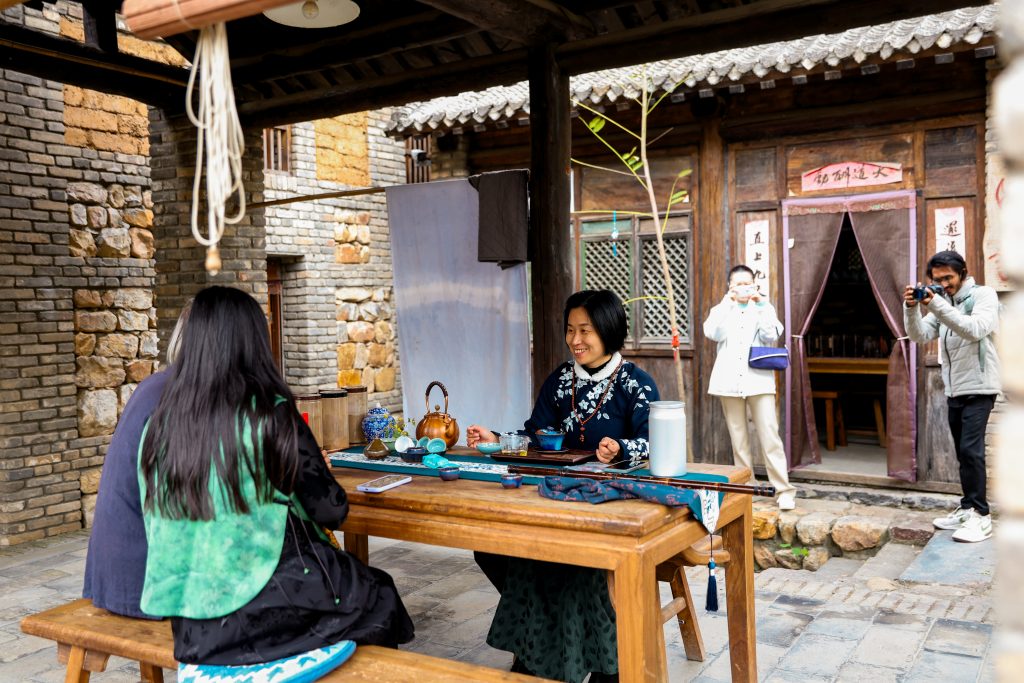
Innovative Rural Revitalization Initiatives
What makes Yangjiamen Village truly remarkable is its embrace of rural revitalization strategies that combine economic development with environmental sustainability. These initiatives have transformed the village into a model for other rural areas in China.
Ecotourism and Homestays
A major driver of the village’s revival has been its focus on ecotourism. Visitors from across China and beyond come to Yangjiamen to experience its idyllic landscapes, rich culture, and traditional hospitality. Several historic homes have been converted into guesthouses, offering travelers a chance to stay in authentic surroundings while enjoying modern amenities.
The homestays are run by local families, who share their stories, meals, and traditions with guests. This not only provides villagers with an additional source of income but also fosters cultural exchange between residents and visitors. Staying in one of these homes offers a rare opportunity to immerse oneself in the rhythms of rural life.
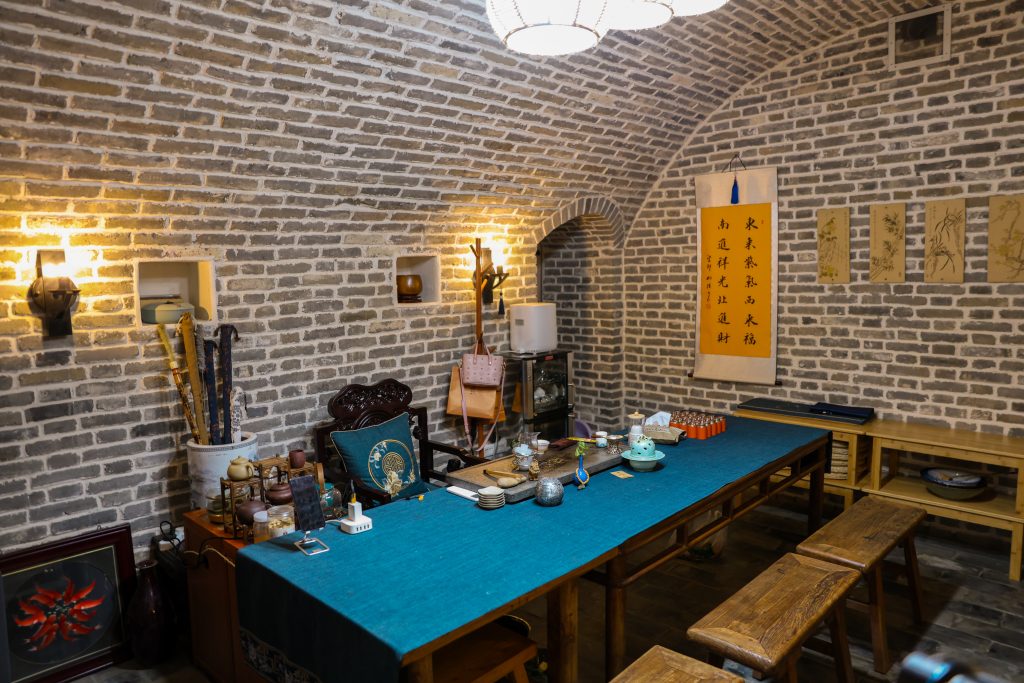
Craftsmanship and Local Products
Another cornerstone of the village’s revitalization has been the promotion of traditional crafts. Yangjiamen is renowned for its handmade textiles, pottery, and woodwork, all of which are sold in local markets and workshops. During our visit, we watched artisans weave intricate patterns into fabrics and carve delicate designs into wooden furniture.
These crafts are more than just commodities—they are a way of preserving the knowledge and skills passed down through generations. The village has also partnered with online platforms to sell these products, allowing local artisans to reach a global audience.
Renewable Energy and Green Practices
In keeping with its commitment to sustainability, Yangjiamen Village has invested in renewable energy and eco-friendly practices. Solar panels dot the rooftops, providing clean energy for homes and community spaces. Organic farming techniques are widely adopted, reducing the use of chemical fertilizers and pesticides. These efforts have not only enhanced the quality of life for villagers but also protected the environment for future generations.
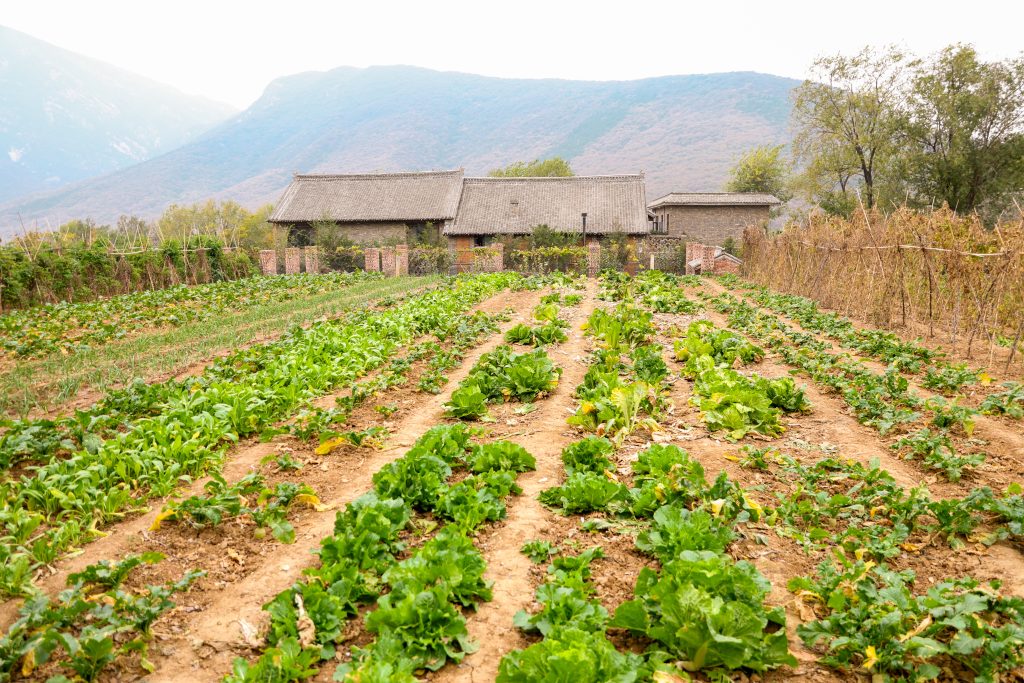
Community Spirit and Shared Prosperity
One of the most inspiring aspects of Yangjiamen Village is its strong sense of community. The revitalization process has been a collective effort, with residents playing an active role in shaping the village’s future. Decision-making is often done collaboratively, ensuring that everyone’s voice is heard and that benefits are shared equitably.
Our guide explained that a portion of the village’s income from tourism and crafts is reinvested into public services, such as education, healthcare, and infrastructure. This model of shared prosperity has helped reduce inequality and improve overall well-being.
Cultural Festivals and Celebrations
Throughout the year, Yangjiamen hosts a variety of cultural festivals that draw visitors and celebrate local traditions. During our visit, preparations were underway for the annual Harvest Festival, which includes performances, feasts, and rituals honoring the land. These events not only strengthen community bonds but also provide visitors with a deeper understanding of rural life and its enduring connection to nature.
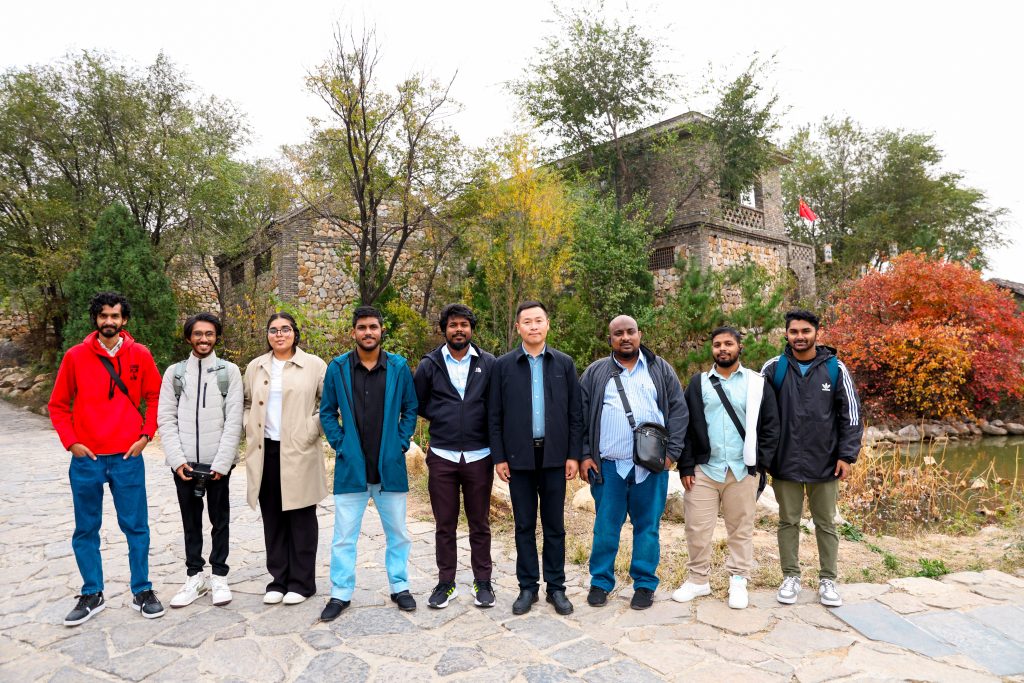
Personal Reflections
As I explored Yangjiamen Village, I was struck by the harmony between tradition and modernity. This small community has managed to retain its cultural heritage while embracing change in a way that feels organic and respectful. The villagers’ pride in their achievements was palpable, and their openness to sharing their way of life was deeply moving.
For me, coming from the Maldives, a country with its own challenges in balancing tradition and development, Yangjiamen Village offered valuable lessons. It demonstrated the importance of community-driven initiatives, sustainable practices, and the preservation of cultural identity as pillars of progress.
A Model for the Future
Yangjiamen Village is more than just a picturesque destination—it is a model for how rural areas can thrive in the face of modern challenges. Its success lies in its ability to innovate while staying true to its roots, creating a blueprint for other communities seeking to revitalize themselves.
As I left the village, I carried with me a renewed appreciation for the resilience and creativity of rural communities. Yangjiamen is not just a place; it is a story of hope, transformation, and the enduring power of people working together to build a brighter future.
